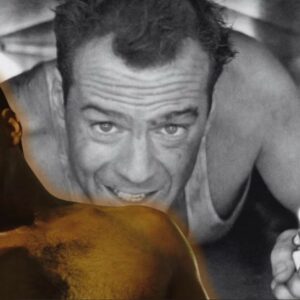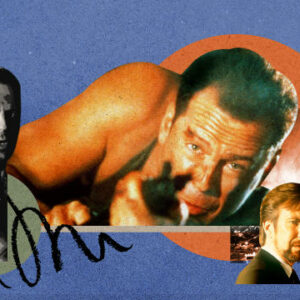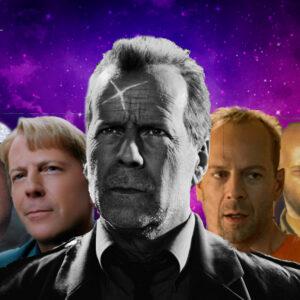Introduction
Daniel Radcliffe’s name is almost synonymous with the “Harry Potter” franchise. From the moment he first appeared as the iconic boy wizard in 2001, Radcliffe captivated audiences worldwide. However, the journey from child star to respected actor in Hollywood has not been without its hurdles. This article explores Radcliffe’s path, highlighting the challenges he faced and how he navigated them to become a versatile and enduring figure in the entertainment industry.
The Early Years: From Stage to Screen
Born on July 23, 1989, in London, Daniel Radcliffe was introduced to the world of acting at a young age. His parents, Alan and Marcia Radcliffe, were not involved in the entertainment industry, but they supported their son’s budding interest in acting. Radcliffe’s initial foray into acting was on stage, where he appeared in a television adaptation of Charles Dickens’s “David Copperfield” in 1999. This early role set the stage for his later success, showcasing his potential and versatility.
The breakthrough came in 2001 when Radcliffe was cast as Harry Potter in “Harry Potter and the Sorcerer’s Stone” (released as “Harry Potter and the Philosopher’s Stone” in the UK). The film, directed by Chris Columbus, was based on J.K. Rowling’s immensely popular book series. Radcliffe, along with co-stars Rupert Grint and Emma Watson, was thrust into the global spotlight. The success of the franchise was unprecedented, and Radcliffe became a household name almost overnight.
The Challenges of Growing Up in the Spotlight
While the immense success of the Harry Potter franchise was a dream come true for Radcliffe, it also presented unique challenges. Growing up in the public eye is never easy, but for Radcliffe, it was compounded by the intense scrutiny of fans and media alike. The pressures of fame, coupled with the responsibility of representing a beloved character, weighed heavily on him.
One of the most significant challenges Radcliffe faced was the risk of being typecast. The Harry Potter series consisted of eight films released over a decade, and Radcliffe’s portrayal of the boy wizard was so iconic that it became difficult for audiences and industry professionals to see him as anything else. This typecasting issue is a common challenge for many child actors, who often struggle to break free from the roles that initially defined their careers.
Navigating the Post-Potter Landscape
After the final Harry Potter film, “Harry Potter and the Deathly Hallows – Part 2,” was released in 2011, Radcliffe found himself at a crossroads. The end of the franchise marked the beginning of a new chapter in his career. Determined to avoid being pigeonholed, Radcliffe took on a variety of roles to showcase his range as an actor.
One of his first post-Potter projects was the 2012 horror film “The Woman in Black,” directed by James Watkins. In this film, Radcliffe played Arthur Kipps, a young solicitor who encounters a malevolent spirit. The film was a departure from the fantasy genre and allowed Radcliffe to demonstrate his ability to handle darker, more mature material.
Radcliffe also ventured into the world of theater, a significant shift from his film career. In 2012, he made his Broadway debut in the revival of “How to Succeed in Business Without Really Trying.” His performance was met with critical acclaim and showcased his versatility as an actor capable of handling both stage and screen roles.
Embracing Diverse Roles
In the years following the end of the Harry Potter franchise, Radcliffe continued to explore a wide range of roles, each more diverse than the last. His commitment to taking on unconventional and challenging parts helped redefine his career and proved his capability as a versatile actor.
In 2013, Radcliffe starred in “Kill Your Darlings,” a biographical drama about the Beat Generation. His portrayal of Allen Ginsberg, a young poet struggling with his identity and creative voice, was praised for its depth and intensity. The film marked a significant departure from Radcliffe’s previous work and demonstrated his willingness to take risks with his career.
The same year, Radcliffe appeared in “The F Word” (released as “What If” in the US), a romantic comedy in which he played Wallace, a young man navigating the complexities of a friendship with a woman he’s attracted to. The film received positive reviews, and Radcliffe’s performance was lauded for its charm and wit.
Radcliffe’s willingness to explore diverse genres continued with his role in the 2015 film “Swiss Army Man,” a quirky comedy-drama in which he played a flatulent corpse with unique abilities. The film was a critical success, and Radcliffe’s performance was praised for its originality and bravery.
Overcoming Personal Struggles
While Radcliffe’s career was thriving, he faced personal struggles that could have derailed his progress. The pressures of fame and the challenges of transitioning from a child star to an adult actor took a toll on him. Radcliffe has been open about his struggles with alcohol during the height of the Harry Potter franchise. In interviews, he has discussed how he used alcohol as a coping mechanism to deal with the pressures and expectations placed upon him.
Radcliffe’s decision to seek help and work on his personal issues was a crucial turning point in his life and career. He has since spoken candidly about his experiences with addiction and recovery, using his platform to raise awareness and offer support to others facing similar struggles.
The Impact of Theater and Independent Film
Radcliffe’s foray into theater and independent film has been instrumental in redefining his career and establishing his credibility as an actor. His stage work, including performances in plays such as “Equus” and “The Cripple of Inishmaan,” demonstrated his ability to tackle complex and challenging roles.
In “Equus,” a play by Peter Shaffer, Radcliffe portrayed Alan Strang, a troubled young man with a fascination with horses. The role was a significant departure from his previous work and required him to perform in nude scenes, which generated considerable media attention. Radcliffe’s performance was met with critical acclaim, and the role was a testament to his dedication and willingness to push boundaries.
Radcliffe’s performance in “The Cripple of Inishmaan,” a play by Martin McDonagh, further solidified his reputation as a serious actor. The play, set in 1930s Ireland, featured Radcliffe as Billy Claven, a young man with a physical disability who dreams of escaping his small village. The role required Radcliffe to undergo a significant physical transformation and showcase his ability to convey deep emotional complexity.
The Evolution of Daniel Radcliffe’s Career
As Radcliffe’s career continued to evolve, he remained committed to taking on challenging and unconventional roles. His willingness to experiment with different genres and mediums has allowed him to build a diverse and impressive body of work.
In 2019, Radcliffe starred in “Now You See Me 2,” a sequel to the 2013 magic-themed heist film. Radcliffe played Walter Mabry, a tech billionaire and antagonist with a vendetta against the film’s protagonists. The role allowed Radcliffe to showcase his ability to portray a charismatic and menacing villain.
In 2020, Radcliffe appeared in “The Devil All the Time,” a psychological thriller directed by Antonio Campos. The film, set in rural America, features Radcliffe in a supporting role as a corrupt preacher. The film received praise for its dark and atmospheric tone, and Radcliffe’s performance was noted for its intensity and depth.
Radcliffe’s role in the 2022 film “Weird: The Al Yankovic Story,” a biographical comedy about the musician “Weird Al” Yankovic, further demonstrated his range as an actor. Radcliffe’s portrayal of Yankovic was both comedic and heartfelt, and the film was well-received by audiences and critics alike.
Philanthropy and Advocacy
Beyond his acting career, Radcliffe has also made significant contributions to various charitable causes and advocacy efforts. He has been involved in numerous philanthropic endeavors, including support for organizations such as The Trevor Project, which provides crisis intervention and suicide prevention services for LGBTQ+ youth.
Radcliffe has also been an advocate for mental health awareness, using his platform to speak openly about his own struggles and the importance of seeking help. His commitment to philanthropy and advocacy reflects his desire to make a positive impact beyond the realm of entertainment.
Legacy and Impact
Daniel Radcliffe’s journey from child star to respected actor is a testament to his talent, resilience, and dedication. Despite the challenges he faced, Radcliffe has managed to reinvent himself and build a diverse and impressive career. His willingness to take on unconventional roles, explore different genres, and confront personal struggles has solidified his status as a versatile and enduring figure in Hollywood.
Radcliffe’s legacy extends beyond his iconic portrayal of Harry Potter. His career trajectory serves as an inspiration for aspiring actors and demonstrates the importance of perseverance, adaptability, and authenticity in the entertainment industry. As he continues to take on new and exciting projects, Radcliffe’s impact on Hollywood and beyond is sure to endure for years to come.
Conclusion
Daniel Radcliffe’s triumph over the struggles of Hollywood is a remarkable story of perseverance and growth. From his early days as the beloved boy wizard to his current status as a respected and versatile actor, Radcliffe has navigated the challenges of fame, typecasting, and personal struggles with grace and determination.
His career trajectory serves as a powerful reminder of the importance of embracing change, taking risks, and staying true to oneself. As Radcliffe continues to explore new roles and contribute to important causes, his legacy as an actor and advocate will undoubtedly continue to inspire and resonate with audiences around the world.





